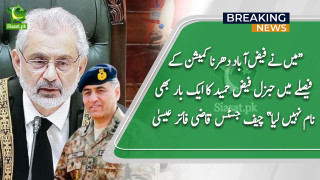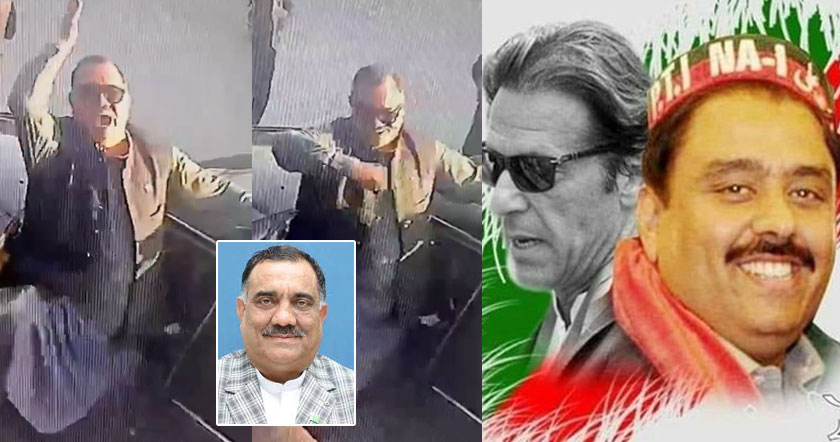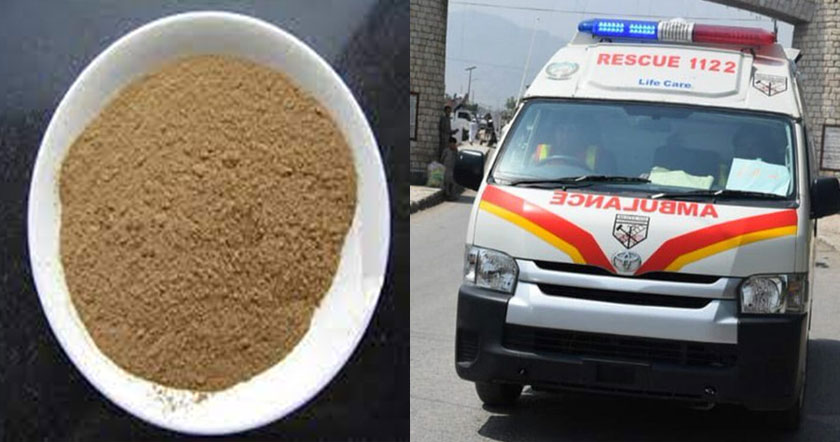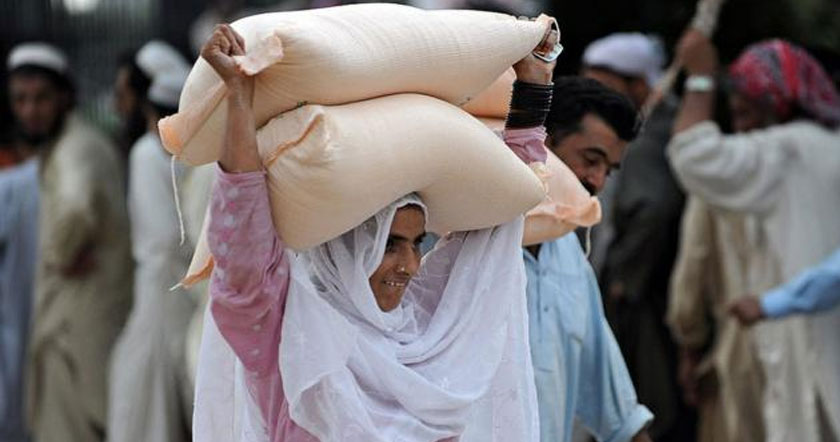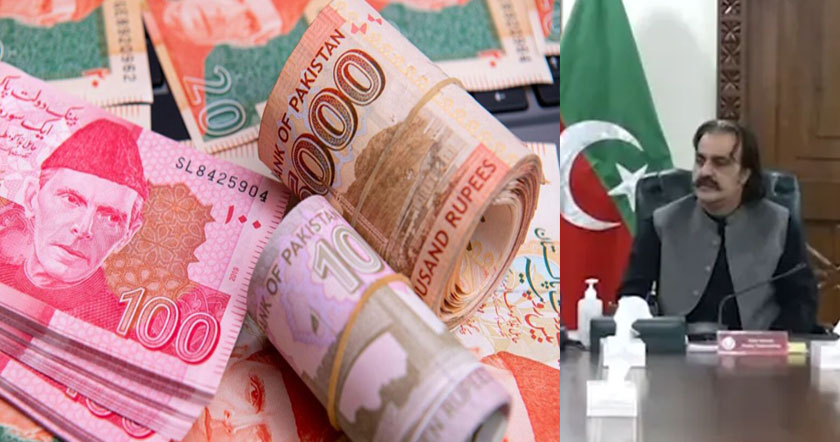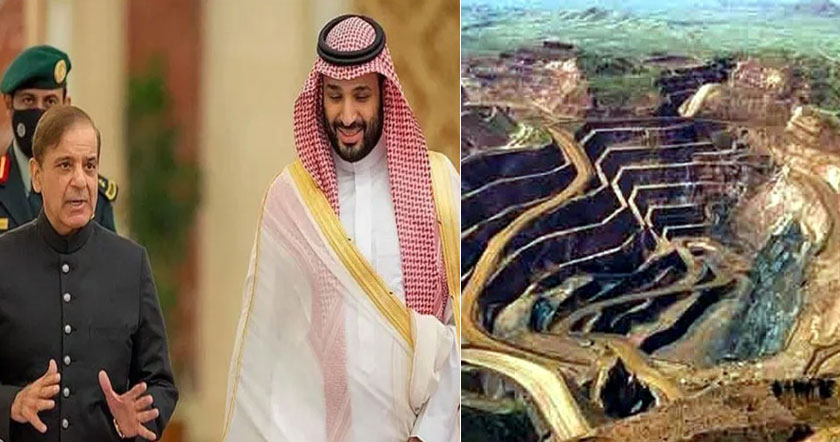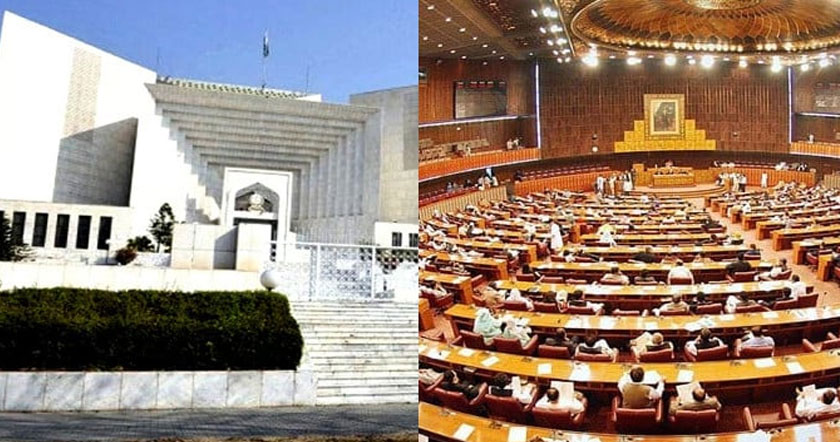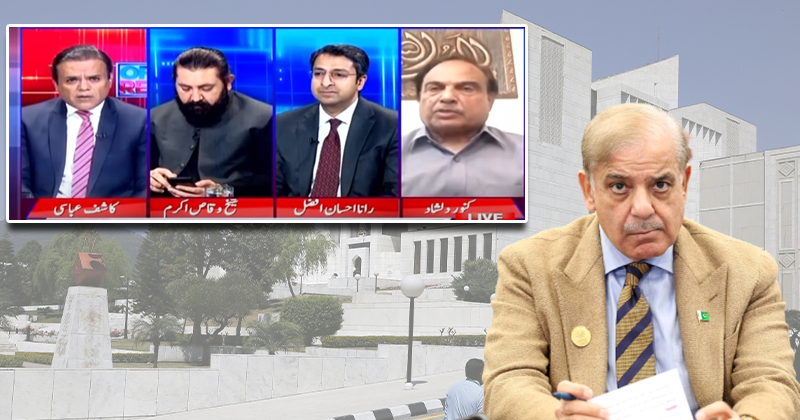Indian Elections 2019 : 7 phases, 38 days, all votes counted on single day - May 23
India and Pakistan, both achieving independence in the same year, present a contrasting study in the context of elections. Geographically, India is approximately four times larger than Pakistan, and when it comes to population size, it is roughly six times greater. This significant difference in both land area and population has a profound impact on their respective electoral processes, political dynamics, and governance structures. While India, with its vast diversity and size, organizes multi-phased elections to effectively manage the world's largest democratic exercise, Pakistan, with its smaller scale, faces its own unique set of challenges and approaches in conducting national elections. The comparative analysis of their election processes not only highlights the logistical and administrative complexities involved but also reflects the differing political landscapes and democratic practices in these two neighboring countries. Lets have a look at how India conducted their last elections in 2019.
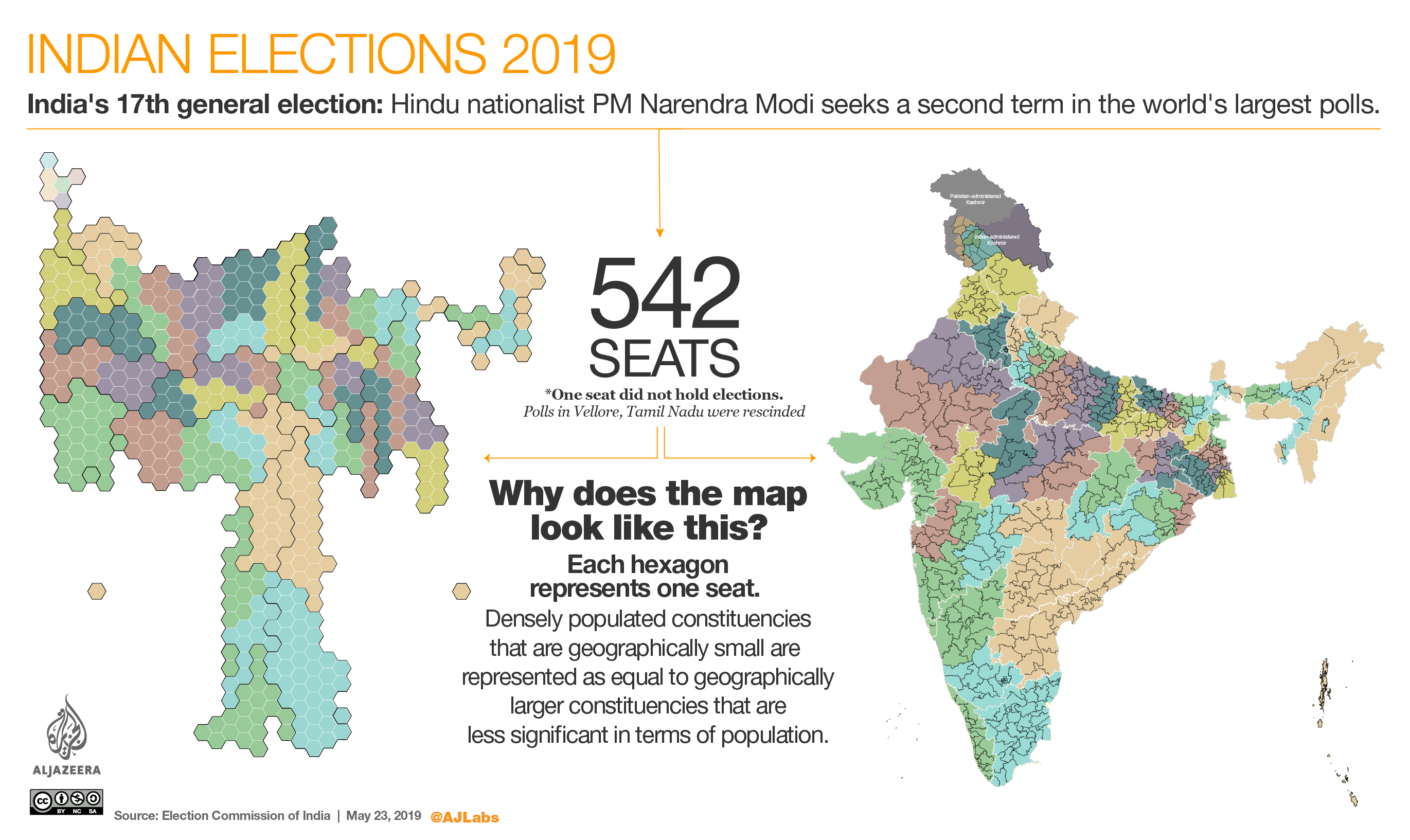
In the 2019 Indian general election, the vote counting was completed on a single day, May 23, 2019. The Election Commission of India, known for its efficiency, managed to count the votes of the world's largest democracy in a matter of hours. The voting for this election was conducted in seven phases from April 11 to May 19, 2019, and the counting of votes was done on May 23. The results were declared on the same day, showcasing their efficiency and speed of the electoral process.
The 2019 Indian general election was conducted in seven phases for logistical and security reasons. This approach allowed the Election Commission of India to manage resources effectively and ensure fair and secure voting across the vast and diverse country. Here's an overview of the seven phases:India and Pakistan, both achieving independence in the same year, present a contrasting study in the context of elections. Geographically, India is approximately four times larger than Pakistan, and when it comes to population size, it is roughly six times greater. This significant difference in both land area and population has a profound impact on their respective electoral processes, political dynamics, and governance structures. While India, with its vast diversity and size, organizes multi-phased elections to effectively manage the world's largest democratic exercise, Pakistan, with its smaller scale, faces its own unique set of challenges and approaches in conducting national elections. The comparative analysis of their election processes not only highlights the logistical and administrative complexities involved but also reflects the differing political landscapes and democratic practices in these two neighboring countries. Lets have a look at how India conducted their last elections in 2019.

In the 2019 Indian general election, the vote counting was completed on a single day, May 23, 2019. The Election Commission of India, known for its efficiency, managed to count the votes of the world's largest democracy in a matter of hours. The voting for this election was conducted in seven phases from April 11 to May 19, 2019, and the counting of votes was done on May 23. The results were declared on the same day, showcasing their efficiency and speed of the electoral process.

- First Phase (April 11, 2019): Voting took place in 91 constituencies across 20 states and union territories. This phase typically includes a mix of regions from different parts of the country.
- Second Phase (April 18, 2019): The election continued in 97 constituencies across 13 states and union territories. Each phase is planned to cover different geographic and political zones of India.
- Third Phase (April 23, 2019): This was one of the largest phases, covering 117 constituencies in 14 states and union territories. The phased approach allows for the redeployment of security and election personnel.
- Fourth Phase (April 29, 2019): The election reached 71 constituencies across 9 states and union territories. By this phase, the election covered a significant portion of the country.
- Fifth Phase (May 6, 2019): Voters in 51 constituencies across 7 states and union territories cast their ballots. The spread-out approach also helps in addressing regional issues effectively.
- Sixth Phase (May 12, 2019): The election moved to 59 constituencies in 7 states and union territories. Each phase is extensively monitored for fairness and transparency.
- Seventh Phase (May 19, 2019): The final phase concluded the voting process with 59 constituencies in 8 states and union territories.
- Uniformity and Fairness: Counting votes on a single day, after all phases have concluded, ensures uniformity and fairness. It prevents early results from influencing voter behavior in subsequent phases.
- Security and Integrity: The ballots (or Electronic Voting Machine (EVM) data) are securely stored under strict surveillance until the counting day. This is to maintain the integrity and secrecy of the electoral process.
- Logistical Efficiency: Counting votes on a single day allows the Election Commission to concentrate resources and administrative efforts efficiently, ensuring that the counting process is smooth and error-free.
- Preventing Prejudicial Influence: Releasing results phase-wise could potentially influence the electoral decisions of voters in later phases. A single counting day prevents this and ensures each voter makes an independent choice.
What can Pakistan learn from India's elections?
Reflecting on the challenges faced by Pakistan in its 2024 elections, there are several aspects of India's electoral process that Pakistan could potentially learn from to improve its own electoral system:
- Use of Technology in Voting: India's extensive use of Electronic Voting Machines (EVMs) has been instrumental in reducing instances of electoral fraud, speeding up the counting process, and ensuring transparency. Pakistan could benefit from adopting or enhancing its use of similar technology, with proper safeguards to ensure security and reliability. PTI did cover some grounds in conducting use of EVMs, however it opposition parties strongly opposed to it and after seeing massive rigging in 2024 elections, it became clear why.
- Phased Voting: India conducts elections in multiple phases to manage resources effectively and ensure security. This approach could be beneficial for Pakistan, especially in regions that are large or have security concerns.
- Voter Education and Awareness: India has made significant efforts to educate voters about the electoral process, the importance of voting, and how to vote. Pakistan could implement similar widespread voter education campaigns to increase electoral participation and awareness.
- Strong and Independent Electoral Body: The Election Commission of India is known for its autonomy and efficiency. Strengthening the independence and capabilities of Pakistan's Election Commission could help in conducting more transparent and fair elections. Currently, Election Commission of Pakistan is seen as a tool of the establishment and favor certain parties and individuals. This has caused erosion of Public Trust as well, resulting in political instability and undermining democracy.
- Robust Mechanisms to Address Electoral Disputes: India has established mechanisms for quickly and effectively addressing electoral disputes. Implementing similar mechanisms in Pakistan could help in resolving election-related controversies efficiently.
- Inclusive Voting: Efforts to include marginalized communities, such as transgender individuals and people with disabilities, in the electoral process have been notable in India. Pakistan could adopt similar inclusive approaches to ensure that all sections of society are represented.
- Streamlined Nomination and Scrutiny Process: India has a clear and efficient process for the nomination of candidates and their scrutiny, which helps in maintaining the quality of candidates. Streamlining this process in Pakistan could enhance the overall standard of electoral candidates.
- Security and Law Enforcement: Ensuring the safety and security of voters, candidates, and election officials is paramount. India's deployment of security forces and strict enforcement of law and order during elections could serve as a model for Pakistan, particularly in areas prone to violence and unrest.
wasiqjaved


